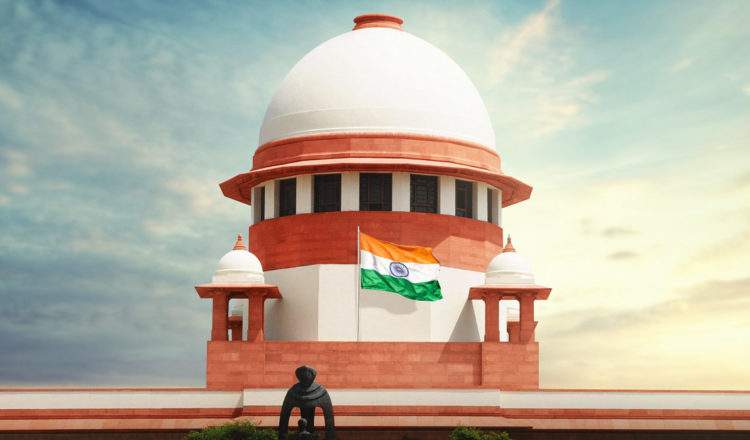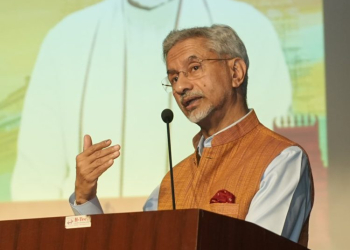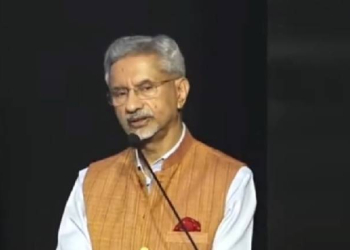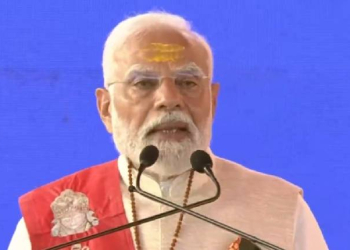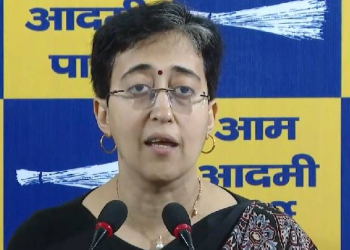New Delhi: Supreme Court judge, Justice A.M. Khanwilkar — who has been part of several crucial judgments including the Aadhaar case, most recently the one upholding several provisions of Prevention of Money Laundering Act, and also the one where the court upheld SIT’s clean chit to then Gujarat Chief Minister Narendra Modi and 63 others in the 2002 riots — retired on Friday.
Justice Khanwilkar, who was sitting with Chief Justice N.V. Ramana and two other judges on the ceremonial bench, said: “As parting words I will only say thank you to all for the love and affection. Thank you so much. God bless you.”
Supreme Court Bar Association (SCBA) President Vikas Singh said Justice Khanwilkar is known as a “workaholic” and added: “It is always difficult for us when a judge retires… He has been there as a colleague of ours. As members of this Bar, we used to share our chambers in the same corridor in the Supreme Court.”
Singh said the age of 65 years is very young for a Supreme Court judge to retire.
Solicitor General Tushar Mehta, who is down with Covid, appeared virtually, said the Attorney General is also down with Covid-19, otherwise he would have expressed his views on Justice Khanwilkar.
Mehta said: “We will miss the smile on his face. Everyone will agree with me that even while dismissing a petition, he would do this with a smile on his face… never left the courtroom with bitterness.”
Senior advocate Harish Salve, who was appearing virtually, said: “It has been an honour and pleasure of knowing Justice Khanwilkar for almost four decades as a colleague… I would say only one thing, that please treat it as the beginning of a second inning and not a retirement.”
Justice Khanwilkar, authored the verdict upholding the Enforcement Directorate’s powers to arrest, attachment of property, search and seize under the Prevention of Money Laundering Act.
He was also part of a constitution bench which declared that the central government’s flagship Aadhaar scheme is constitutionally valid but struck down some of its provisions — linking it to bank accounts, mobile phones, and school admissions.
He was part of the bench, which, in 2018, held Section 377 of the Indian Penal Code (IPC) , which criminalised consensual gay sex, as “irrational, indefensible and manifestly arbitrary”.
The bench struck down part of the British-era law that criminalised consensual sex on the ground that it violated the constitutional right to equality and dignity.
Recently, a bench headed by Justice Khanwilkar upheld the SIT’s clean chit to Modi and 63 others in the 2002 Gujarat riots. The top court said the SIT investigation into 2002 Gujarat riots revealed that no material was discovered pointing to a meeting of minds in the higher echelons, or the political establishment conspired with other persons to cause riots or turned a Nelson’s eye when the riots were raging.
In a judgment on petitions challenging provisions of the FCRA Amendment Act in April this year, a bench headed by Justice Khanwilkar said that receiving foreign donations cannot be an absolute or even a vested right, and free and uncontrolled flow of foreign contributions has the potential of impacting the sovereignty and integrity of the nation.
Justice Khanwilkar was also part of the five-judge constitution bench, which paved the way for entry of women of all ages into the Ayyappa temple at Sabarimala in Kerala. He was also part of a constitution bench which ruled adultery is no longer a crime in India.
Justice Khanwilkar was elevated as an apex court judge in May 2016. He was born on July 30, 1957 in Pune, and did LLB from a law college in Mumbai. He was appointed the Chief Justice of the High Court of Himachal Pradesh on April 4, 2013, and later the Chief Justice of Madhya Pradesh High Court on November 24, 2013.
(IANS)



